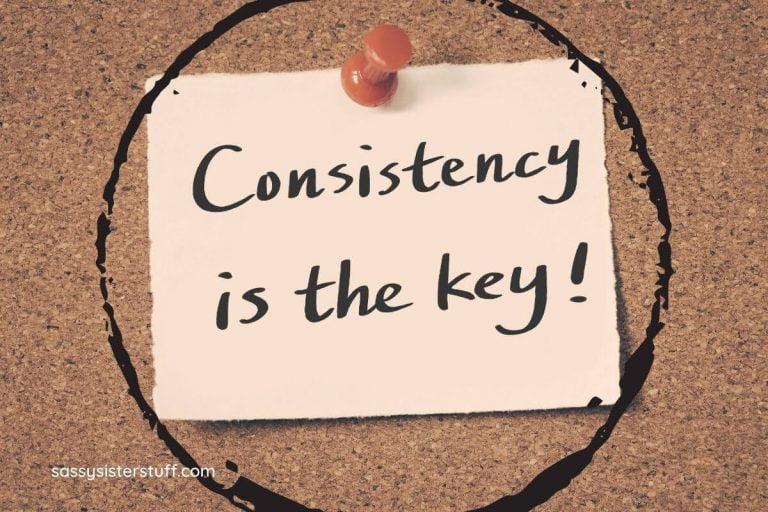15 Smart Money Habits to Lock Into for Extra Wealth
Money isn’t just about numbers in your bank account; it’s about how you feel and interact with it daily. For many, money can be a source of stress, guilt, or confusion, but it doesn’t have to be that way.
By making minor changes to your mindset and habits, you can transform money from overwhelming to a tool that helps you build the life you want. Whether you want to save more, spend more intelligently, or feel more confident in your financial decisions, these tips will help you take control of your money with ease.
Reframe Your Money Mindset

Your attitude toward money shapes how you handle it. Instead of seeing money as something stressful or scarce, start viewing it as a resource that works for you. A positive money mindset helps you make smarter financial decisions without fear or guilt. The more you respect and understand your finances, the better your relationship with money will be.
Identify Your Financial Priorities

What matters most to you? Whether saving for a home, traveling, or paying off debt, knowing your financial priorities helps you spend and save purposefully. Aligning your money habits with your goals makes decisions that bring you long-term happiness easier. Clarifying what truly matters will help you cut unnecessary expenses and focus on what counts.
Build a Simple Budget

Budgeting doesn’t mean restricting yourself; it means giving your money a job. Find a method that works for you, whether the 50/30/20 rule or a budgeting app that tracks your spending. A clear budget helps you stay on top of expenses while ensuring room for savings and fun. The key is to create a budget that fits your lifestyle so you stick with it.
Track Where Your Money Goes

If you’ve ever wondered why your paycheck disappears so fast, tracking your spending can be an eye-opener. Use a finance app or jot down purchases in a notebook to see where your money goes. Identifying spending habits helps reduce wasteful purchases and redirect that money toward what truly matters. Minor adjustments can lead to significant savings over time.
Create a Separate Emergency Fund

Life is full of surprises, and not all of them are good. An emergency fund prevents unexpected expenses, like car repairs or medical bills, from throwing you off track. Setting aside a little each month can add up and give you peace of mind. A financial cushion means fewer money-related worries when life throws you a curveball.
Automate Your Savings

Make saving money effortlessly by setting up automatic savings or investment account transfers. When savings happen automatically, you’re less likely to spend that money impulsively. Treat your savings like a non-negotiable bill and watch your financial security grow. Even small automatic contributions can make a big difference over time.
Break the Cycle of Impulse Spending

We’ve all purchased in the heat of the moment, only to regret it later. Before buying something, step back and ask yourself if it aligns with your financial goals. Delaying purchases for 24 hours can help you decide if you truly need or want the item. Practicing mindful spending keeps you from wasting money on things that don’t add value to your life.
Focus on Financial Education

Understanding money basics, like how credit works, the importance of investing, and how to save for retirement, gives you the confidence to make better financial choices. Read books, listen to finance podcasts, or take an online course to expand your knowledge. The more informed you are, the easier it is to make smart financial moves. Money isn’t just for experts; anyone can learn to manage well.
Reduce High-Interest Debt First

Debt can feel heavy, but tackling high-interest debt first helps lighten the load. Focus on paying off credit cards and loans with the highest interest rates to save money in the long run. Consider the snowball or avalanche method to pay down debt in a structured way. Once debt is under control, you’ll have more freedom to save and invest.
Stop Comparing Your Finances to Others

It’s easy to feel behind when you see others buying new cars, taking luxury vacations, or living in expensive homes. But financial success isn’t about appearances—it’s about stability and freedom. Stay focused on your goals instead of trying to keep up with someone else’s lifestyle. Your journey is unique, and progress looks different for everyone.
Find Joy in Simple, Low-Cost Activities

You don’t have to spend a lot to enjoy life. Look for activities that bring you joy without draining your bank account, like hiking, reading, or cooking at home. Finding fulfillment in simple pleasures helps you spend less on unnecessary things. The best experiences in life often don’t have a high price tag.
Set Healthy Money Boundaries

It’s okay to say no when friends or family pressure you into spending beyond your budget. Be honest about what you can afford and set boundaries that protect your financial well-being. Whether declining an expensive dinner or refusing to lend money, making wise choices today will benefit you in the long run. True friends and family will respect your financial boundaries.
Invest in Your Future

Putting money toward retirement, education, or skill-building is one of the most innovative things you can do. Investing in yourself; whether through courses, certifications, or personal growth—pays off in the long run. Even small investments today can lead to bigger opportunities and financial security later. The earlier you start, the greater the benefits will be.
Reward Yourself Responsibly

Improving your finances doesn’t mean depriving yourself. Set up small, affordable rewards when you hit a financial milestone, like paying off a debt or reaching a savings goal. Treating yourself within reason keeps you motivated while staying on track. The key is balance; enjoy your wins without undoing your progress.
Be Patient with Your Progress

Changing your financial habits takes time, and there will be ups and downs. Don’t get discouraged if you slip up; what matters is getting back on track and improving. Focus on long-term progress rather than overnight success. No matter how small, every positive change brings you closer to financial freedom.







